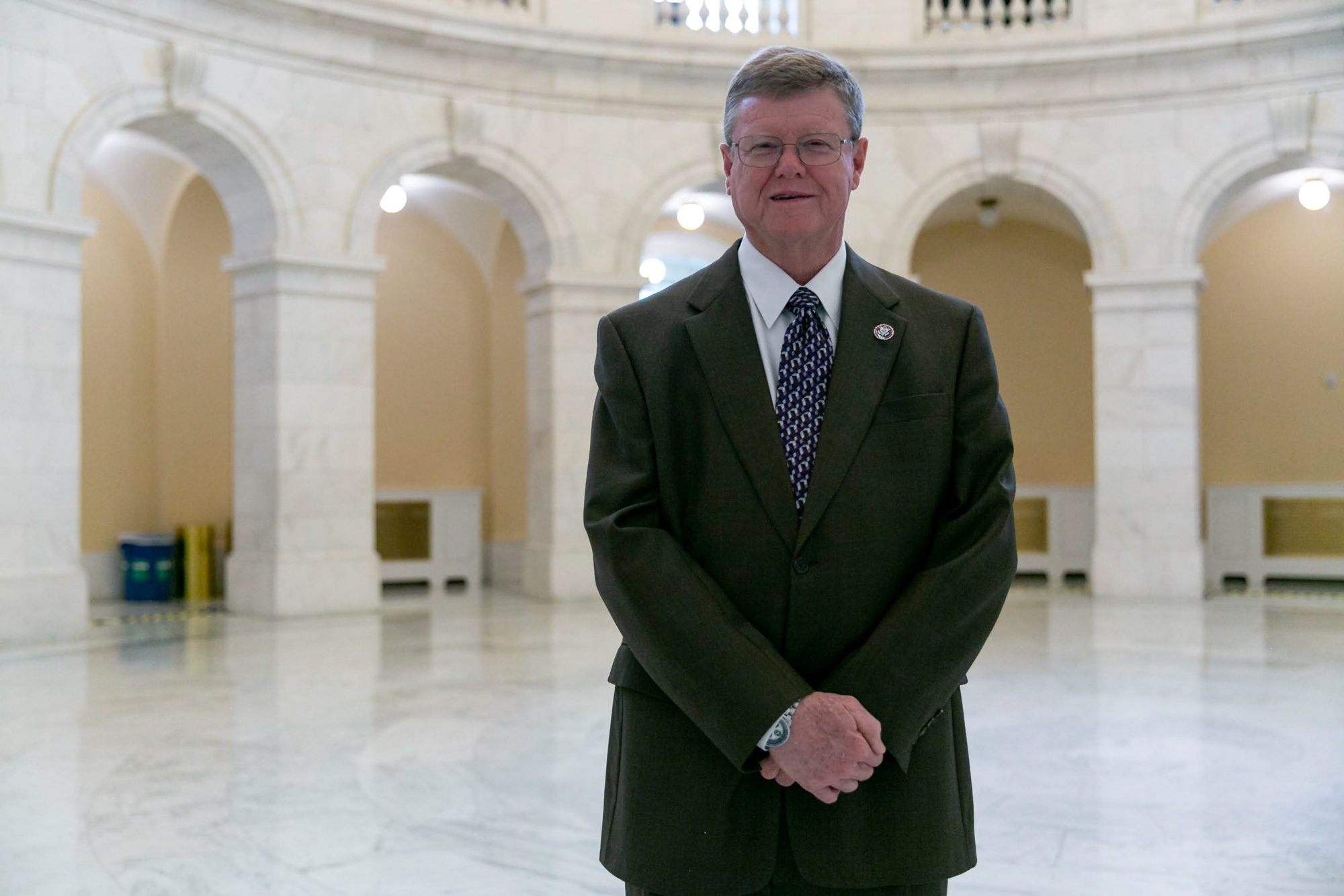For the second straight year, Rep. Mark Amodei (R-NV) shepherded a spending bill through the House of Representatives — this time taking on one of the most challenging appropriations assignments.
The Homeland Security funding bill passed the House on Friday morning, 212-203. Last year, a lack of support from far-right Republicans nearly toppled a spending deal and brought Congress close to a government shutdown.
The News of the Week: Homeland Security funding
The biggest coup for Amodei in the Homeland spending fight was that it was not much of a fight at all — or at least not an internal one.
This time around, Amodei did lose six Republicans, including usual suspects such as Reps. Matt Gaetz (R-FL), Marjorie Taylor Greene (R-GA) and Tim Burchett (R-TN). But he made up the difference by earning the support of five Democrats, some of whom represent districts that former President Donald Trump won in 2020.
The overall bill funds Homeland Security priorities at a level about $3 billion higher than last year; Republicans argue it invests in border security although Democrats say it doubles down on failed strategies.
The bill in its current form will not become law. It included an amendment — for example, that blocks embattled Homeland Security Secretary Alejandro Mayorkas from receiving a salary, among other riders — that will be untenable to the Democratic majority in the U.S. Senate. Once the Senate passes its Homeland spending bill, the two chambers will go to conference to reconcile their bills’ differences.
But one of the reasons the appropriations process has been less dramatic this year is that both parties acknowledge the next fiscal year’s spending level will likely be determined in the lame duck session of Congress — after the 2024 presidential election. Then, each party will know who controls the White House and each chamber of Congress, and therefore what to push for.
The Nevada Angle
I caught up with Amodei after several amendment votes on the bill Wednesday — after a busy afternoon in which he led the floor debate for Republicans. (Amodei himself was huddling with House Majority Whip Tom Emmer (R-MN) when I found him.)
Much of the floor debate between him and ranking member Lauren Underwood (D-IL) and other Democrats revolved around the place of nonprofits and non-governmental organizations at the border. Amodei defended the decision to cut funding to nonprofits.
“This bill invests in tried-and-true methods of securing the border that men and women are asking for — more agents, more detention beds, more technology and — ‘I know this is bad’ — physical barriers,” he said.
But in an acknowledgment of the complex intraparty dynamics on matters of homeland security and surveillance, Amodei did also take on a fellow Republican — Rep. Andrew Clyde (R-GA).
Clyde came to the floor to propose an amendment to flatline funding to the Cybersecurity and Infrastructure Security Agency (CISA), arguing the Biden administration has weaponized its cybersecurity agency to “police and censor Americans’ speech.”
In his rebuttal, Amodei noted the issue had been addressed in the prior appropriations cycle, and that CISA’s domestic mission — including protecting Americans from cyberhacks such as the one that occurred at MGM Resorts in 2023 — requires the uptick in funding the appropriations bill provides.
“It’s a funny time to be telling the folks who are in charge of cybersecurity in the non-[Department of Defense] sectors, we’re going to flat fund you,” Amodei said on the floor. “And I do not believe that money is the answer to every problem we come across. The mission has never been more challenging.”
Clyde’s amendment ultimately failed, with 104 Republicans joining all Democrats to vote it down.
The Impact
As I said earlier, this bill will not become law. But its passage on the floor — and attraction of a few Democratic votes — is a strong sign of Amodei’s capabilities as a cardinal managing a tough bill.
Around the Capitol
🏡Affordable housing win — The Federal Home Loan Bank of San Francisco announced an investment of $9.4 million into nine affordable housing developments in the state.
The announcement comes after Sen. Catherine Cortez Masto (D-NV) had called out the bank for disproportionately directing funds to California and Arizona rather than Nevada. In 2021, Nevada received no grant funding.
The money will go toward developments in North Las Vegas, Fallon, Laughlin and tribal lands, among other sites.
💻OSIT on top — The National Telecommunications and Information Administration awarded about $9 million to the Governor’s Office of Science, Innovation and Technology (OSIT) to implement Nevada’s digital equity plan — the first state to receive such funding.
The award announcement demonstrates the impressiveness of OSIT’s plan and grant proposal compared with its equivalents in other states. The funding comes from a digital equity grant created through the 2021 Bipartisan Infrastructure Law.
The funding will attempt to ensure the federal build-out of high-speed internet is affordable and accessible to all Nevadans.
What I’m Reading
The Nevada Current: Nevada’s minimum wage hits $12 an hour July 1. Now what?
Get your bread up.
The Nevada Independent: New groups aim to restore faith in election system, uphold democracy
There’s a George Michael song in there somewhere.
KNPR: What is the Mining Regulatory Clarity Act, and is it good for Nevadans?
Our caller today is U.S. Sen. Catherine Cortez Masto.
Notable and Quotable
“Who’s voting for Jacky Biden in November? Anyone who lied to you about POTUS capabilities to lead the USA doesn’t deserve to be a Senator. We all just saw the truth with our own eyes.”
— Sam Brown, hoping to tie Biden’s debate performance to his Senate opponent
Vote of the Week
H.R.8774 — On Passage: Department of Defense Appropriations Act, 2025
The defense funding bill had the most “yes” votes of the appropriations bills voted on Friday, with five Democrats joining all but one Republican. But the Nevada Democrats weren’t part of the group.
AMODEI: Yes
HORSFORD: No
LEE: No
TITUS: No

